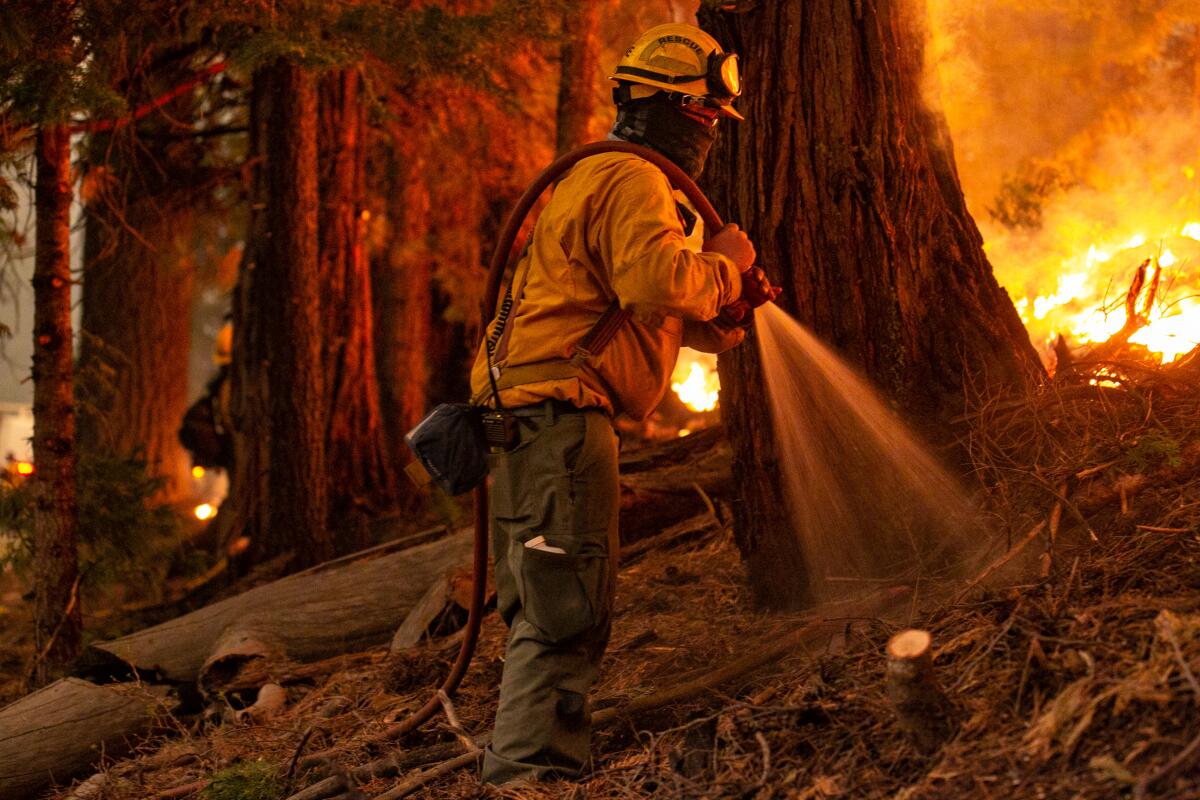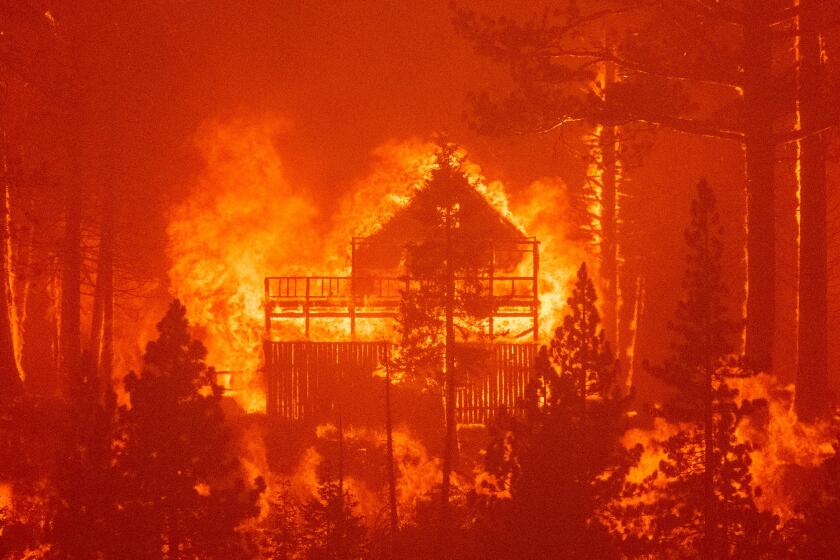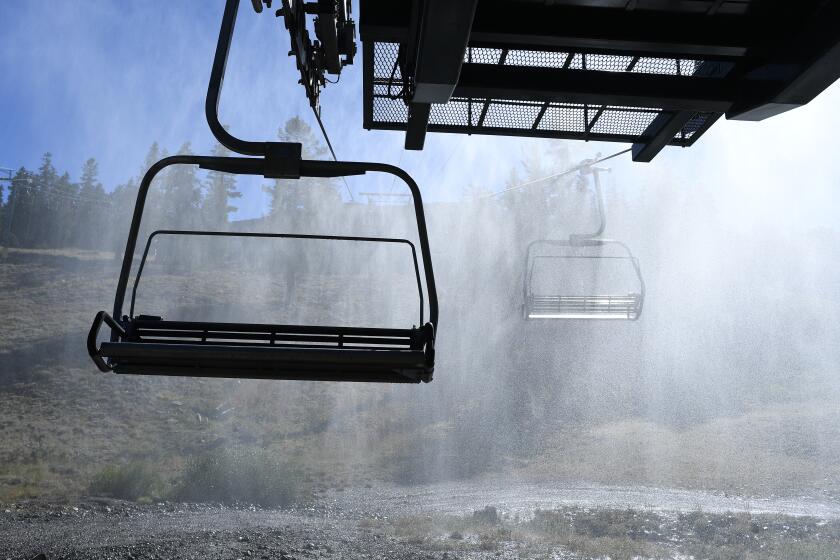Father and son arrested on suspicion of starting California’s Caldor fire

- Share via
Authorities in Northern California announced the arrest of a father and son in connection with the Caldor fire, which burned for 67 days and threatened the community of South Lake Tahoe as it grew to become the 15th-largest wildfire in recorded California history.
David Scott Smith, 66, and his son, Travis Shane Smith, 32, were arrested on Ramey warrants, which are issued before criminal charges are filed, according to the El Dorado County district attorney’s office.
Both men are accused of “reckless arson,” prosecutors said.
Formal criminal charges are pending.
The district attorney’s office could not be reached Wednesday for further comment.
Mark Reichel, a defense attorney representing both men, disputed prosecutors’ allegations and said his clients were “salt-of-the-earth people” who have never been charged with a crime.
“Nobody was out there besides them and some other campers,” Reichel said. “We shouldn’t charge people and we shouldn’t convict them on theories. We should do it on facts.”
Travis works as an electrician and was with his father near the area where the Caldor fire started, east of Omo Ranch and south of Grizzly Flats in El Dorado County, Reichel said.
Both men saw flames and Travis tried calling 911 multiple times, the attorney said, but the calls kept dropping because of the area’s remote location. At some point, the men came across campers and warned them about the blaze, he said.
The Caldor fire started Aug. 14 and was contained Oct. 21, according to the California Department of Forestry and Fire Protection. Flames consumed 221,835 acres, destroyed 1,003 structures and damaged 81 more.
Five people were injured, according to Cal Fire.
The Caldor fire has also changed the view of fire risk in Lake Tahoe.
Together with the Dixie fire, the Caldor blaze marked what officials called an “unprecedented” fire season that saw both conflagrations become the first to burn from one side of the Sierra Nevada to the other.
By late August, the fire entered the Lake Tahoe Basin and moved steadily toward South Lake Tahoe and the Nevada border, prompting a slew of evacuations as firefighters worked to herd the flames away from the community.
Firefighters and residents hoped a towering granite ridge would help keep the flames at bay, but gusty winds and bone-dry conditions pushed the fire closer to the resort community, spurring an all-out battle.
Tens of thousands of residents and visitors fled, snarling traffic on Highway 50 as skies darkened from smoke and ash blanketed the landscape.
Firefighting crews made stands in nearby Christmas Valley and held the flames south of Meyers, carving containment lines around more than a third of the blaze.
Officials credited aggressive firefighting, improved weather conditions and past efforts to prepare for wildfire with saving the resort town.
Crews used snowmaking machines to spray water at ski resorts as the fire neared.
No structures burned in South Lake Tahoe, and crews were also able to save homes in Christmas Valley and Meyers.
Authorities credited the success to aggressive firefighting tactics, improved weather conditions and past efforts to clear fuel from the land around structures.
More to Read
Sign up for Essential California
The most important California stories and recommendations in your inbox every morning.
You may occasionally receive promotional content from the Los Angeles Times.
















